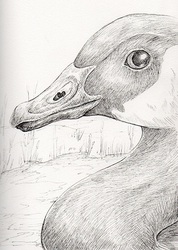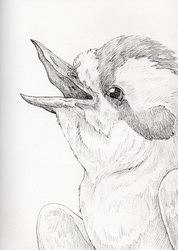Sign In
CloseTotem of the day is Impala! If you have been feeling trapped in a situation or by a certain person, know that now is the time to pull away from it in order to save yourself. This may include a series of unexpected changes in your life so let yourself move and shift swiftly with the changes. There may be an opportunity occurring for you that you should feel free to jump into! Let yourself work harder and reach higher for your goals and be flexible in your actions and thoughts. In coming conversations, open yourself to listening to what may not be said. The Impala spirit guide is known for it's connection to motion, sensitivity, adaptation, secrets, grace, and nimble motions in mind and body. Impala can be a reminder to put trust in those close to you, but it can also be a reminder to remember to take care of yourself. Survival involves teamwork with those around you, but also the actions needed to keep oneself safe and provided for. Horns are known as a symbol of physic abilities and connection to higher powers. When Impala reveals itself, this is a sign that a greater awareness is coming to you. Rely on truth to guide you. If may be beneficial to indulge in scents or aromatherapy. Call on Impala when you wish to feel greater grace and elegance or to find answers through their power of wisdom. In Africa, Impala are seen as a sign of good harvest and in the Congo it is thought that antelope horns hold spirits within them. People who connect with Impala often live in homes surrounded by nature, particularly water and some for of forest. These individuals love movement, including running or dancing, and are often quite graceful and elegant when in motion. They often enjoy social activities with others, particularly of their own gender.
Impalas, Aepyceros Melampus, are herbivorous mammals that can live up to 15 years in the wild. Native to Africa, Impala are found in woodlands with less undergrowth and grasslands as well as savannas. They are one of many species of Antelope and belong to the Bovidae family, making them related to cattle, sheep, and goats as well. There are 6 subspecies of Impala: the Tanzanian, Kenyan, Common (or Black-face) Impala, Katangan, and Malawi Impala. An adult Impala weighs up to 165 lbs and around 38 inches long. Male Impala grow twisted, black horns that can reach over 30 inches long. The male Impala, called Rams, use these horns to defend against rival males as well as predators. Generally a reddish brown color with black stripes along their forehead, eat tips, thighs, and tail, it is thought that Impalas will identify individuals using these black stripes. Impala are known for their elegance and grace. This comes partially from their amazing jumping abilities. Impala can jump as high as 10 feet in the air and as far as 33 feet far. This enables them to easily leap over obstacles if running from a predator. They are able to reach a speed of up to 55 mphs, often engaging in zig-zag motions meant to confuse predators. Highly adaptable, Impala are able to adjust their eating habits according to the seasons and what is available in their surrounding environments. The diet of an Impala consists of vegetation such as grasses, roots, bark, stems, and leaves. While preferring fresh grass, they will also eat others forms of foliage when no grass is available. Foraging occurs during the early morning or right before sunset. Gathering in groups called Herds, Impala will look for food together during the dry season. However, males will become more territorial during the rainy season and will work to gather females into their own herds. When reproducing, a female will leave her herd in order to give birth. The mother will wait a day or two before bringing her baby, or calf, back to the herd. Weaning occurs between 4 and 7 months. Groups of young Impala will gather into groups called Creches in which they will play with and groom each other. After 12 to 18 months, the calves are fully mature.
Submission Information
- Views:
- 1286
- Comments:
- 0
- Favorites:
- 1
- Rating:
- General
- Category:
- Visual / Traditional




